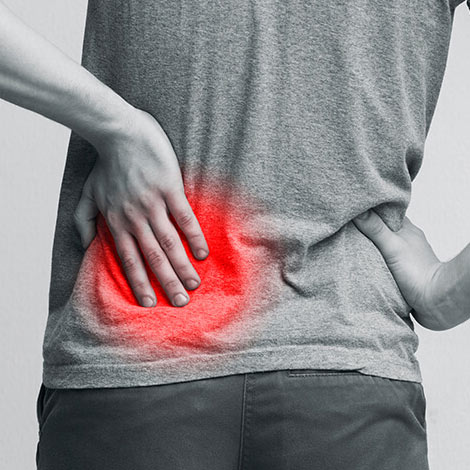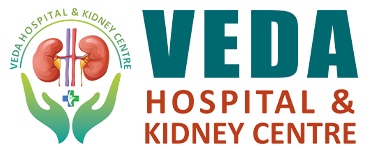Acute Kidney Injury Treatment in Vijayawada
What is Acute Kidney Injury (AKI)?
Acute Kidney Injury (AKI), formerly known as acute renal failure, is a sudden and often reversible loss of kidney function. It occurs over a period of hours to days and results in the accumulation of waste products, fluid imbalance, and electrolyte disturbances in the body. Unlike chronic kidney disease, AKI appears abruptly and can be triggered by various conditions such as severe infections, dehydration, medications, or trauma.
The kidneys play a vital role in filtering blood, removing toxins, and maintaining the body's fluid and electrolyte balance. In the case of AKI, these essential functions are impaired, leading to serious complications if not treated promptly.

Causes of Acute Kidney Injury
Acute Kidney Injury can result from one or more underlying causes. These are typically categorized into three groups:
- Pre-renal causes: These involve reduced blood flow to the kidneys due to factors such as dehydration, heart failure, or low blood pressure.
- Intrinsic (renal) causes: Direct damage to the kidney tissues due to infections, inflammation, toxins, or autoimmune diseases.
- Post-renal causes: Obstructions in the urinary tract that prevent urine from leaving the kidneys, such as kidney stones, enlarged prostate, or tumors.
Symptoms of Acute Kidney Injury
AKI may not present with obvious symptoms in the early stages. However, as the condition progresses, the following symptoms may appear:
- Decreased urine output
- Swelling in legs, ankles, and around the eyes
- Shortness of breath
- Fatigue and weakness
- Nausea and vomiting
- Confusion or mental fog
- Chest pain or pressure
Who is at Risk for Acute Kidney Injury?
While anyone can develop AKI, certain individuals have a higher risk:
- People with diabetes or hypertension
- Older adults, especially above 65 years
- Patients undergoing major surgeries
- Individuals with chronic kidney disease
- Those on medications like NSAIDs or ACE inhibitors
- Patients with severe infections or sepsis
Diagnosis of Acute Kidney Injury
Early diagnosis is crucial to prevent further complications. Diagnosis typically includes:
- Blood tests: To check for elevated levels of creatinine and urea.
- Urine tests: To detect abnormalities in urine content.
- Imaging tests: Ultrasound or CT scans to look for obstructions or structural abnormalities.
- Kidney biopsy: In selected cases to determine the exact cause of damage.
Treatment for Acute Kidney Injury
Treatment depends on the underlying cause and severity of the condition. It includes:
- Fluid management: To restore hydration or remove excess fluids through diuretics.
- Medication adjustments: Stopping or changing drugs that may have contributed to AKI.
- Dialysis: In severe cases, temporary dialysis is required to remove toxins and balance fluids.
- Managing electrolytes: Correcting levels of potassium, sodium, and calcium in the blood.
- Infection control: Treating any underlying sepsis or infections aggressively.
Recovery and Prognosis
With timely diagnosis and proper medical care, many patients recover fully from AKI. However, some may go on to develop chronic kidney disease, especially if AKI is severe or recurrent. Regular monitoring, healthy lifestyle choices, and follow-up with a nephrologist are essential for recovery and prevention.
Expert Acute Kidney Injury Care by Dr. M.V. Viswanath
Dr. M.V. Viswanath is a leading nephrologist in Vijayawada with extensive experience in diagnosing and treating Acute Kidney Injury. Known for his patient-centric approach and clinical precision, Dr. Viswanath provides specialized care for AKI cases ranging from mild to critical.
Patients at all stages of kidney injury receive personalized treatment plans, continuous monitoring, and holistic care under his guidance. He works closely with multidisciplinary teams to ensure better outcomes and faster recovery.
Why Choose Veda Hospital & Kidney Centre, Vijayawada?
Veda Hospital & Kidney Centre is a premier kidney care institution in Vijayawada, known for its state-of-the-art facilities, expert nephrologists, and evidence-based treatment protocols.
Highlights of the hospital include:
- Advanced diagnostic and dialysis facilities
- 24/7 nephrology and critical care services
- Specialized AKI and CKD treatment programs
- Multidisciplinary approach for complex kidney cases
- Post-discharge rehabilitation and lifestyle counseling
Veda Hospital is committed to offering ethical, affordable, and high-quality nephrology care in the heart of Vijayawada.
Frequently Asked Questions (FAQs) on Acute Kidney Injury
-
Is Acute Kidney Injury reversible?
Yes, many cases of AKI are reversible if diagnosed and treated early. However, delayed treatment can lead to permanent kidney damage.
-
How quickly does AKI develop?
AKI can develop in a matter of hours to a few days, depending on the underlying cause and severity of the condition.
-
Can dehydration cause AKI?
Yes, severe dehydration can reduce blood flow to the kidneys, leading to pre-renal AKI.
-
What is the difference between AKI and CKD?
AKI is a sudden onset condition, while Chronic Kidney Disease (CKD) is a long-term, progressive decline in kidney function.
-
Is dialysis always required for AKI?
No, dialysis is only needed in severe cases where kidney function drops critically and waste products accumulate dangerously.
-
What should I eat during recovery from AKI?
A kidney-friendly diet with limited sodium, potassium, and fluid intake is recommended. Consult a nephrologist or dietitian for guidance.
-
Can AKI occur after surgery?
Yes, surgical stress, blood loss, or medication reactions can lead to AKI post-surgery, especially in elderly or high-risk patients.
-
How can I prevent AKI?
Stay well hydrated, avoid overuse of painkillers and antibiotics, monitor chronic conditions like diabetes, and get regular checkups.
-
How long does it take to recover from AKI?
Recovery time varies. Some recover within days or weeks, while others may take months, especially if dialysis is required.
Acute Kidney Injury is a serious condition that requires immediate attention. Prompt medical intervention can often reverse the damage and restore kidney function. If you or a loved one experiences symptoms of AKI, consulting a nephrologist at the earliest is crucial.
Under the expert care of Dr. M.V. Viswanath at Veda Hospital & Kidney Centre, Vijayawada, patients receive world-class diagnosis, treatment, and support throughout their recovery journey. Prioritizing kidney health today can prevent life-threatening complications tomorrow.
Best healthcare providers

Unmatched Nursing Support

Top-notch Patient Care

Hospitable environment

Phenomenal intervention

